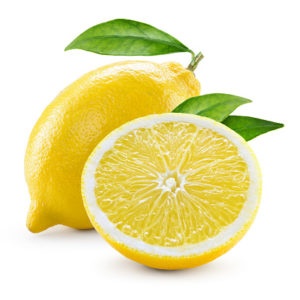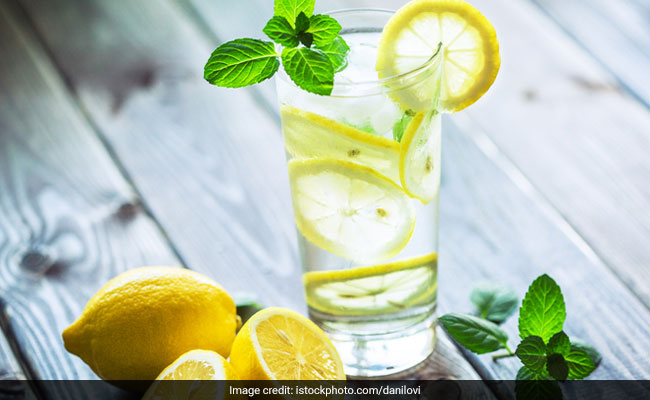HEALTH BENEFITS OF LEMON WATER
When we consume a medium-sized lemon, we get enormous benefits of lemon water and this is the reason why it is regarded as one of the foods for the blood. Lemon water cleanses the blood and brings about regeneration.
Lemon was introduced to Europe in the 12th century by the Arabs, however, it was first farmed in southeast of the Iberian Peninsula. Like other citrus trees, lemon is native to Central Asia and as a matter of fact, the Spanish explorers introduced it to Americas and today, lemon is cultivated in temperate regions of the earth.
Other names:
Bearss, Eureka lemon,
French: Citron
Spanish: Limon, limon agrio
German: Zitrone
The lemon is somewhat the aggregate fruit of the lemon tree (‘Citrus limon’ Burm.), it belongs to the botanical family Rutaceae and it reaches 3 to 6 meters in height.
Lemon Water composition
The following is what we can get from 100 grams of fresh lemon water
Energy = 29.0 kcal kj
Carbohydrates = 6.52 g
Protein = 1.10 g
Fiber = 2.80 g
Vitamin = 3.00 µg RE
Vitamin B1 = 0.040 mg
Vitamin B2 = 0.020 mg
Vitamin B6 = 0.080 mg
Vitamin B12 = ___
Vitamin C = 53.0 mg
Vitamin E = 0.240 mg α-TE
Niacin = 0.100 mg NE
Folate = 10.6 µg
Calcium = 26.0 mg
Phosphorus = 16.0 mg
Magnesium = 8.00 mg
Potassium = 138 mg
Iron = 0.600 mg
Zinc = 0.060 mg
Total Fat = 0.300 g
Saturated Fat = 0.039 g
Cholesterol = ___
Sodium = 2.00 mg
A percentage (%) daily value which is based on 2, 000 calorie diet (given by 100 grams of lemon water (peel and pulp inclusive)
READ ALSO: Health Benefits of Celery
Properties and Indications of Lemon Water
If you observe closely the information given above regarding the lemon water composition, you will notice that vitamin C stands out and again, it’s just slightly less than orange in comparison.
You will also notice that lemon water virtually contains no fat and protein. The carbohydrates content is just 8.23%.

In essence, looking at the dietary and therapeutic standpoint, you may conclude that lemon water has not much nutrients to offer in terms of health and medicinal benefits, however, it is noteworthy that lemon water has an accompanying substances called phytochemicals. They are neither mineral salts nor vitamins and as such they cannot be seen as nutrients.
The discoveries made recently have shown that these somewhat non-nutritive substances have a remarkable preventive properties or effects on diseases such as cancer and this has been one of the greatest advances of nutrition science. Therefore, I can clearly stand to tell you that one of the benefits of lemon water is its action of preventing diseases such as cancer.
Let’s take a look at the percentage (%) composition of lemon water
Fiber = 2.80%
Minerals = 0.300%
Fat = 0.300%
Carbohydrates = 6.52%
Protein = 1.10%
Water = 89.0%
YOU MAY LIKE: Foods to stop Diarrhea
The following are some of the non-nutritive substances contained in lemon water
Organic Acids
Organic acids such as citric acid, acetic acid, malic acid, and formic acid are capable of potentiating the action of vitamin C or ascorbic acid and also hold some antiseptic effects.
Flavonoids
Hesperidin and diosmin are the predominant flavonoids and are found in the pulp and peel of the lemon. The following are some of the physiological roles carried out by these flavonoids:
- They protect the capillaries and this is done by stabilizing the capillary and also fosters the flow of blood in the veins. In essence, they prevent thrombosis and edema.
- As antioxidants: they act as antioxidants by potentiating vitamin C and also halt oxidation damage to the cells which is the very first stage in the ageing process mechanism. They also neutralize free radicals.
- As anticarcinogens: flavonoids can neutralize various carcinogenic substances which tend to threaten the cells.
Terpenes
These are the substances that are responsible for giving all citrus fruits their aroma. They are mostly found in the peel and the abundant among them is d-limonene which has an enormous anticarcinogenic and detoxifying effects. With terpenes in the peel and in lemon water, we can get the following clinical applications gotten from its effects on the blood as one of the benefits of lemon water:
- Depurant: According to tasty-yummies, they are quite diuretic and depurant. they foster the alleviation of toxins from the blood
- Anti-anemic: terpenes facilitate iron absorption.
- They prevent thrombosis because they improve blood fluidity.
Therefore, lemons or lemon water is recommended in cases such as:
Anemia
Anyone suffering from anemia should include lemon water or form a part of the diet. We know that the iron content is quite low; however, lemon water is an anti-anemic food or drink which improves the absorption of iron supplied by plant-based foods.

This is because of the presence of vitamin C and other non-nutritive substances such as its organic acids.
Again, as one of the benefits of lemon water, it contains a significant amount of folic acid which proffers the production of blood and other protective functions it offers, especially in pregnant women. It is therefore recommended for pregnant women.
Disorders in Circulation
Flavonoids such as hesperidin and other potential flavonoids contained in lemon water or in its peel or pulp help strengthen the walls of capillary and also bring about elasticity of arteries and bring down the tendency of the blood to excessive clotting.
Therefore, in cases of arteriosclerosis, edema, or thrombosis it is highly recommended and also when there is need to bring up the fluidity of the blood and circulation.
Kidney Stones
Lemon water or lemon treatment is quite effective in dissolving kidney stones, particularly those formed of uric acid salts.
READ ALSO: How To Reduce Weight Home Remedies
Infections
The presence of phytochemical and vitamin C content facilitate the body’s defense mechanism to resist and combat infections. Therefore lemon treatment is effective in combating various forms of viral or bacterial infections.
Topical Applications
When topical applications are carried out, lemon water will remarkably show its antiseptic and antibiotic effects. Whether applied on the nostrils, the throat or to the skin and even the eye’s conjunctiva. To prevent or fight against conjunctivitis, apply two drops of lemon water in the eye three times a day.
Excess Uric Acid
Lemon water is quite active in alleviating uric acid, a waste which must be eliminated in the urine. Excess uric acid deposited in the joint regions cause arthritis and rheumatic pain and this produces inflammation in the kidney.
Digestive Orders
When diluted with water, it is forms an excellent beverage for diarrhea, gastroenteritis or colitis cases. This is because of the antiseptic astringent effects of the lemon water.
Anti-carcinogenic

D-limonene is an aromatic terpene found in the lemon, primarily in the peel. This type of terpene is capable neutralizing various carcinogens. When lemon water is consumed with other foods, it contributes to neutralizing certain carcinogenic substances found in some foods and this will help prevent or fight against cancer.
Preparation and Use
- Fresh Juice: Lemon should not be eaten as fruit due to their high level of acidity. Therefore, it is only the lemon water or juice recommended for consumption. The peel should be included if it is free of pesticide. Peel is good because great medicinal values of benefits of lemon are mostly found in the peel.
- For dressing and seasoning: Lemon water or juice improve the flavor and the digestibility of other vegetables, legumes and even rice.
- Lemon treatment: This should be based on a two-week period. First day, drink the lemon water before meal; an hour before breakfast. Consequently on other days, one lemon is added up to seven and from this point the order is reversed back to one lemon on the last day.
Caution:
Children, the older folks and those with low calcium, anemia or renal failure should desist from this treatment.
Using more than one lemon on a day on the regular, as well as lemon treatment should be avoided in the cases of:
- Chronic constipation
- Anemia
- Gastrointestinal ulcer: this is because it increases stomach acid secretion.
 When dressing and seasoning, it should not be mixed in the mouth foods that are somewhat starchy such as chestnuts, bananas, or potatoes.
When dressing and seasoning, it should not be mixed in the mouth foods that are somewhat starchy such as chestnuts, bananas, or potatoes.
It is noteworthy that acids found in lemon water are capable of inhibiting the action of ptyalin. This will proffer poor digestion because ptyalin is an enzyme found in the saliva which starts off carbohydrate digestion in the mouth.

A graduate of Computer Science and Information Management Technology. Diploma – Caregiving, Certificates – Dementia and Diabetes Awareness and Management. A researcher, blogger, songwriter, singer and acoustic guitarist. Born in an environment where natural talents such as healing are imparted at our natural birth. This natural talents of healing is the result of our genetic inheritance and the training from family environment.



















